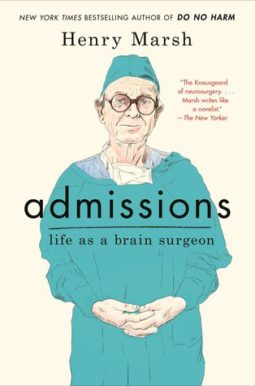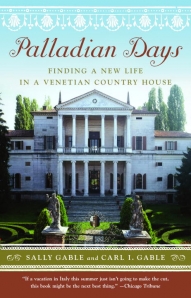This review contains affiliate links, which earn me a small commission when you click and purchase, at no extra cost to you. Thank you for supporting my small business and allowing me to continue providing you a reliable resource for clean book ratings.
Dr. Henry Marsh wrote about his career as a brain surgeon in Do No Harm, published in 2014. In this second book, he writes about the things he has done since retiring, around that same time: he went back to Nepal and Ukraine to again assist neurosurgeons he’s trained and helped over the years; he bought a small lockkeeper’s cottage along a canal near where he grew up and got to work cleaning it up and setting it to rights after long years of neglect; he continued to do woodwork.
Admissions is a bit meandering, taking readers back and forth between the cottage, where he’s tossing out years of debris and clearing the yard for new gardens, including some apple and walnut trees; the hospital where he’s worked for some time and is retiring from, and the homes and hospitals where his longtime friends in Nepal and Ukraine work tirelessly to provide care to people who live in much different circumstances than do we in the West.
Marsh shares many of his concerns about the state of health care in the United Kingdom, which has a system he feels could work very well for its citizens but falls short because of complicated bureaucracy and politicians who aren’t willing to raise sufficient funds to make it work as it should. He reflects on patients he’s seen who have suffered needlessly at the end of their lives because of too much medical intervention and the lack of the option to choose when to die. He reflects on his own aging and mortality and how he would like to be able to die; he stresses several times that he’s not religious and firmly does not believe in an afterlife, so he simply would like to have a good death. He reflects often about the mistakes he’s made and some regrets he does have. As he retires from his career but spends time with those he’s mentored in Nepal and Ukraine, he questions how much he’s been able to help and how well those men he’s trained can carry on neurosurgery in their countries.
I still have Do No Harm on my to-read list, but I had the opportunity to read this book first, thanks to getting an ARC from NetGalley. I think now I’ll push that one up closer to the top of my read-next list and see what else Marsh has to say about his work over the years. I enjoyed this book, though it did wander a bit, so I imagine the other will be just as interesting or more so, with it probably focused more on the brain surgery he did for so many years. Marsh has some interesting insights on life, death/dying and medical practice, and his take on the British National Health Service is valuable as those of us who live in the U.S. still debate how best to provide health care to our citizens.
Rated: Moderate. There is one instance of strong language very near the beginning and one of moderate language near the end. Sexual references are limited to an admission of an extramarital affair and a mention of a passionate kiss but no details. While this book does discuss some surgeries, mostly of the brain, it doesn’t have a lot in the way of blood. Honestly, if this book didn’t have those two words, it would nearly be a “none” rating.
Click here to purchase your copy of Admissions: Life As a Brain Surgeon on Amazon.
*I received an ARC of this book in exchange for my honest review.




